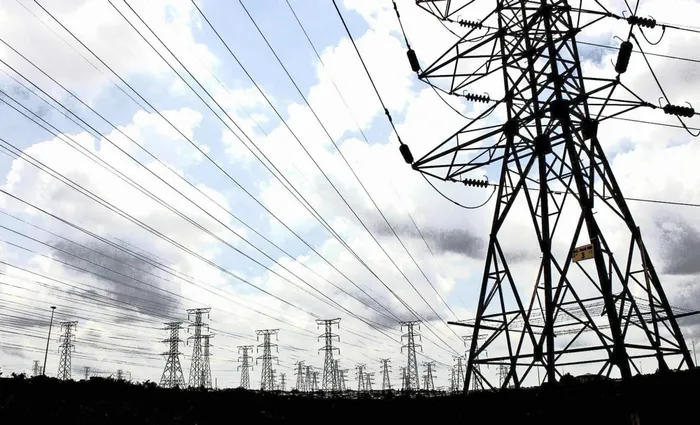Reclaiming the right to a just and sovereign transition

Africa, where over 789 million people still lack access to electricity, is being urged to leapfrog that path entirely, bypassing the very resources that built the prosperity of industrialised nations.
Image: Bhekikhaya Mabaso/Independent Newspapers
In the rolling hills of the UK’s Midlands, dormant coal-fired power stations once stood as relics of a bygone era, idled by a nation that had seemingly secured energy stability.
When I visited in 2019 for business, I witnessed this reality firsthand. Locals noted that the UK, at the time, enjoyed a surplus energy supply, partly due to nuclear imports from France.
That moment, surrounded by silenced smokestacks and the quiet hum of stable infrastructure, symbolised a country that had completed its coal-to-gas-to-renewables evolution.
The UK’s energy life cycle, spanning centuries of coal-fuelled industrialization to today’s diversified mix, reflects a journey enabled by wealth, infrastructure and time. In stark contrast, Africa, where over 789 million people still lack access to electricity, is being urged to leapfrog that path entirely, bypassing the very resources that built the prosperity of industrialised nations.
This leapfrogging model is being imposed on Africa, despite its unique energy landscape and development needs and reflects a broader global trend of framing African energy challenges through a Western lens.
Why should Africa, rich in both fossil fuel reserves and renewable potential, be denied its development trajectory?
This question underpins a growing call for a sovereign, human-centric energy transition—one that balances climate objectives with urgent needs for energy access, job creation and economic growth.
Africa’s energy future is not just a matter of mitigating climate change; it is intrinsically tied to the region’s ability to uplift millions out of poverty and unlock its potential for industrialisation.
The UK’s transition reveals how historical privilege shaped its options. Coal accounted for over 90% of British energy production by 1900.
Decades later, the discovery of North Sea gas enabled a shift to cleaner fossil fuels and government-backed mechanisms, like the Contracts for Difference scheme, subsidised wind and solar expansion.
The final coal units were phased out by 2024, helped along by emissions reduction treaties and large-scale public investment.
Yet this model is ill-suited to Africa.
The UK’s high GDP per capita and centralised energy infrastructure contrast sharply with Africa’s rural, fragmented energy needs and economic limitations. In much of Sub-Saharan Africa, capital-intensive solutions like large-scale battery storage are impractical, while decentralised solar mini-grids offer more viable, scalable options.
Climate frameworks that discourage gas exploration may unintentionally restrict Africa’s potential, even as demand is projected to triple by 2050. Africa's energy deficit is a stark reminder of the continent’s underdevelopment in energy infrastructure.
With nearly 789 million people lacking access to electricity, the disparity between the energy needs of the global South and the global North is glaring.
Several countries in Sub-Saharan Africa still rely heavily on traditional biomass, which contributes to deforestation, air pollution and negative health outcomes. Yet despite being home to 60% of the world’s remaining arable land, Africa’s renewable energy resources have not been harnessed to their full potential.
While there are impressive strides in renewable energy across the continent, these solutions remain fragmented. Africa has tremendous solar and wind potential and its vast biomass resources offer a promising avenue for bioenergy development. Still, large-scale investments in renewable infrastructure have been slow and policy frameworks continue to favor more expensive, centralized energy models that do not work for Africa's diverse energy needs.
The call for a sovereign energy transition comes from the need to empower African nations to create energy systems that reflect their priorities—systems that incorporate both fossil fuel resources and renewables, tailored to national contexts. Around the world, no country has followed a single blueprint.
China, the world’s largest solar producer, still relies on coal for half its energy mix to fuel growth. Brazil’s ethanol-based transport system powers nearly half its vehicles but remains vulnerable to global oil price shocks.
These models reflect the same truth: transitions must be context-specific and built around national priorities.
India’s energy journey underscores this sentiment.
As the world's largest democracy with over 1.3 billion people, India has pursued a balanced approach, incorporating both renewable energy and fossil fuels into its energy mix. In 2020, India became the world’s third-largest producer of solar power, yet coal still accounts for 70% of its electricity production. India’s experience demonstrates that for countries with large populations and diverse economies, an immediate transition to a renewable-only energy system is not only impractical but potentially harmful to economic growth.
South Africa, the continent’s most industrialised economy and largest carbon emitter, embodies the complexity of managing a just energy transition.
Coal still generates over 90% of the country’s electricity, yet ageing infrastructure has caused chronic load shedding. With 35,000 MW scheduled for decommissioning by 2050, the challenge is not only environmental—it is social, political and economic.
Programs like the Renewable Energy Independent Power Producer Procurement Programme (REIPPPP) have introduced modest renewable capacity.
Meanwhile, the Just Energy Transition Partnership (JETP) has attracted significant international finance.
But structural obstacles—such as job losses in coal-dependent provinces and 47% of households facing energy poverty—continue to hinder momentum. A hybrid energy model could offer a realistic path forward.
South Africa can phase out coal gradually by 2040, leveraging natural gas from neighbouring Mozambique as a bridge and expanding its network of decentralised solar and bioenergy systems. Bioenergy alone, powered by the continent’s vast arable land, could generate significant capacity while creating sustainable employment.
International institutions estimate that scaling renewable infrastructure with annual climate finance of $25 billion could increase Africa’s GDP by nearly 1% per year over the next decade. Community-led transition frameworks—focusing on local ownership and affordability—would further strengthen resilience and inclusive growth. Africa’s energy future cannot be shaped by one-size-fits-all prescriptions.
A phased, diversified approach— combining coal retirement, gas development and scalable renewables—can offer both sustainability and sovereignty. Tools like the African Continental Power System Masterplan can drive regional integration, enabling countries like Ethiopia and Kenya to share hydropower and reduce reliance on isolated systems.
This level of integration could also foster innovation and economies of scale in energy production, distribution and infrastructure development.
As Africa’s energy markets mature, regional cooperation will be key to ensuring that energy investments reach the most underserved regions. Cross-border energy projects, such as the East African Power Pool, have already demonstrated the benefits of regional cooperation, with countries pooling resources to construct energy infrastructure and share the electricity generated. Equitable climate finance remains a critical enabler for Africa’s energy ambitions.
Wealthier nations must honour their commitments, closing the energy access gap without imposing rigid, renewable-only models.
While African nations are undoubtedly committed to sustainable development, they cannot be expected to transition without adequate financial support and technical assistance. Africa’s energy future is not just about emissions—it is about dignity, opportunity and self-determination.
Ending energy poverty, unlocking 14 million clean energy jobs by 2030 and transforming lives through access to healthcare, education and entrepreneurship all require policies that evolve with urgency and precision.
As Ngozi Okonjo-Iweala, Director-General of the World Trade Organization, aptly put it, “We cannot ignore the critical role energy plays in advancing Africa’s development. A just transition for Africa must be led by Africa itself, with global support for its sovereignty and future.” Indeed, no nation can transition in isolation. Africa’s journey requires not only bold national leadership but meaningful global collaboration. A just transition—built on local realities, regional cooperation and global equity—will define Africa not as a follower of external mandates, but as a bold architect of its destiny.
Nomvula Zeldah Mabuza is a Risk Governance and Compliance Specialist with extensive experience in strategic risk and industrial operations. She holds a Diploma in Business Management (Accounting) from Brunel University, UK, and is an MBA candidate at Henley Business School, South Africa.

Nomvula Zeldah Mabuza is a Risk Governance and Compliance Specialist with extensive experience in strategic risk and industrial operations. She holds a Diploma in Business Management (Accounting) from Brunel University, UK, and is an MBA candidate at Henley Business School, South Africa.
Image: Supplied
BUSINESS REPORT
Visit: www.businessreport.co.za